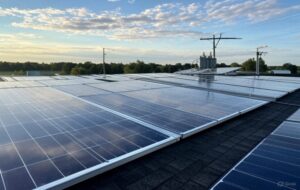Trump’s J6 Pardons: Correcting an Overreach
Presidential pardons are a constitutional power meant to prevent or rectify miscarriages of justice. Trump’s pardons for the J6ers recognize the excessive and politically motivated prosecutions these individuals faced. Many were sentenced to years in prison for trespassing offenses, while violent rioters from left-wing movements, such as Antifa and BLM, walked free. The unequal application of justice has not gone unnoticed.
Supporters argue that these individuals were political prisoners targeted by a justice system weaponized against conservatives. Critics, on the other hand, claim that the pardons embolden political violence. But at its core, the pardon power exists precisely to prevent the government from selectively punishing its opponents while shielding its allies.
Biden’s Preemptive Pardons: Protecting the Guilty?
What should alarm every American—regardless of political affiliation—is Biden’s unprecedented move to issue preemptive pardons to government officials, including members of the January 6 Committee, Dr. Anthony Fauci, and General Mark Milley. The key distinction? Trump’s pardons addressed past actions, while Biden’s pardons were preemptive, shielding these figures from any potential future legal consequences.
This raises several disturbing questions:
- What crimes or legal infractions were they worried about?
- If their actions in the J6 investigations were lawful and ethical, why seek legal immunity?
- Does this set a precedent for elites to operate with complete legal impunity, knowing they can be shielded from future accountability?
The fact that those who led the most aggressive pursuit of Trump and his supporters felt the need to secure their own legal protections suggests that corruption ran deeper than most Americans realize.
The Uncharted Territory of Preemptive Pardons
While pardons can be issued before a conviction (as seen when Gerald Ford pardoned Richard Nixon), preemptive pardons for potential future crimes have never been legally tested. This raises critical legal and constitutional questions:
- Can a president shield individuals from prosecution for crimes that haven’t yet come to light?
- If pardons are issued in bad faith to cover up wrongdoing, can they be overturned?
- Does this create a two-tiered justice system where government elites are never held accountable?
If Biden’s preemptive pardons are challenged in court, the outcome could redefine the limits of executive power in ways that could either restore balance—or cement corruption.
The Political and Constitutional Fallout
The J6 pardons are a political flashpoint, with Trump’s critics calling them dangerous while his supporters see them as justice served. But the far greater issue is how Biden’s preemptive pardons highlight the systematic erosion of legal accountability in Washington.
- Weaponized Justice System: Those in power have used the legal system to target political opponents while ensuring their own legal immunity.
- Media Silence: The mainstream media fixates on Trump’s pardons while conveniently ignoring the unprecedented and legally dubious actions of Biden.
- Dangerous Precedent: If these preemptive pardons stand, future administrations may exploit this power to cover up crimes before they’re even investigated.
Conclusion: The Real Threat to Democracy
Trump’s J6 pardons are not the issue—they were a response to an already corrupted justice system. The real danger lies in Biden’s proactive pardons, which set a chilling precedent for unchecked government power. If high-ranking officials can preemptively absolve themselves of accountability, the rule of law in America is effectively dead.
The American people must question the selective outrage and demand answers. What was Biden’s administration so afraid of? And more importantly—what are they still hiding?



